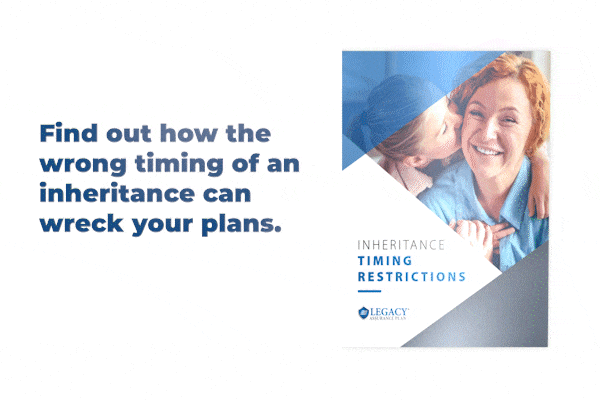Confronting the reality of one's mortality is a profound act of foresight and an ultimate expression of compassion for those we love. Planning for our eventual passing, though often difficult to contemplate, is a crucial step in safeguarding the well-being of our family members after we're gone. It involves much more than just a consideration of our assets; it's about ensuring peace of mind for both ourselves and our loved ones.
When we plan for the end of our life, we are taking proactive measures to alleviate the potential emotional, financial and practical burdens that inevitably accompany the loss of a loved one. The grief and sorrow that follow a family member's passing are profound and can be overwhelming. By organizing our affairs and making key decisions about end-of-life matters in advance, we provide a clear roadmap for our loved ones during a time when they may be least capable of making complex decisions.
This planning encompasses a range of actions – from the practical, such as detailing our financial assets and liabilities, to the deeply personal, like specifying our wishes for funeral arrangements. It's an exercise that extends far beyond the realms of legal and financial concerns, touching upon the very essence of our life and the legacy we wish to leave.
Moreover, such planning is an act of love and care. It’s about taking the burden of tough decisions off the shoulders of our family members when they are in a state of mourning. It's also about ensuring that our personal wishes are known and respected, and that our affairs are in order so that the process of settling our estate is as smooth and straightforward as possible for our executors and beneficiaries.
Ultimately, planning for our passing is a vital part of life's journey – a responsible and caring act that protects our families from avoidable stress and confusion during a period of loss. It provides a sense of closure, knowing that we've done all we can to make our departure from this world as easy as possible for those we cherish most.
Organizing personal affairs and important documents
Organizing your personal affairs and important documents is a crucial step in estate planning that significantly eases the responsibilities shouldered by your family after your passing. This process involves meticulous documentation and secure storage of vital information, ensuring that your loved ones have ready access to everything they need to manage your estate effectively and with minimal stress.
Compile a comprehensive list of all your assets. This should include real estate properties, bank accounts, investment accounts, retirement accounts, life insurance policies and any other significant financial assets.
For each asset, include details such as the location, account numbers and the names and contact information of financial advisors or institutions where these assets are held.

Equally important is listing all existing debts. This includes mortgages, car loans, credit card debts, personal loans and any other liabilities.
Provide information about where these debts are held, account numbers and any relevant contact persons, which will be crucial for settling these debts.
Create a directory of important contacts such as your attorney, accountant, financial advisor, insurance agent and any other professionals who have been involved in your financial or legal affairs.
Include key account numbers and contact information, as this will be invaluable for your family to access accounts and start the process of managing and settling your estate.
Digital assets are often overlooked but are increasingly significant. These can include online bank accounts, social media accounts, digital photo libraries, email accounts and any online business interests.
Provide clear instructions on how these digital assets can be accessed, including passwords and any necessary two-factor authentication details.
Once all these details are compiled, store them in a secure yet accessible location. Consider using a fireproof safe or a safety deposit box. Additionally, digital storage options can be used, but ensure they are secure and accessible to those who will need them.
Inform a trusted family member or executor where these documents are stored and how they can be accessed when the time comes.
Keep in mind that your financial situation and assets are likely to change over time. Regularly updating these records is crucial to ensure that the information remains current and accurate.
Planning your own funeral services

Advance planning of funeral services is a significant act of thoughtfulness and consideration for both oneself and one's family. By taking the reins on this sensitive subject, you can ensure that your final rites reflect your personal preferences and values, while also alleviating the decision-making burden from your loved ones during a time of mourning.
The first step in planning your funeral is to decide on the type of service you prefer. This could range from a traditional religious ceremony to a more secular or non-traditional service. Your choice might reflect your religious beliefs, cultural practices or personal philosophy.
Consider whether you want a large gathering or a more intimate service. Some may prefer a grand ceremony, while others might choose a small, family-oriented gathering.
The location for your funeral service can hold significant personal meaning. It could be a place of worship, a family home, a favorite spot or a funeral home. The choice may be guided by tradition, convenience for attendees or a personal connection to the place.
If you have a particular location in mind that is unconventional, make sure to detail any special arrangements or permissions that might be needed.
Consider any specific rituals, customs or traditions that you would like included in your service. This could include readings, musical selections, the involvement of certain individuals or specific cultural or religious rites.
If you have unique or less common requests, it’s helpful to provide detailed instructions or even contact information for individuals or organizations that can facilitate these wishes.
Once you have planned your funeral service, it's crucial to communicate these plans to your family or the executor of your will. This might involve writing down your wishes or holding a family meeting to discuss them.
Ensure that your instructions are accessible and clearly understood to prevent any confusion or ambiguity at the time of need.
You might also consider prepaying for your funeral services. This can be done through a funeral home or a funeral insurance plan. Prepayment can relieve your family of the financial burden and ensure that the costs are covered according to your predetermined plan.
While it’s important to plan, it’s also wise to allow some flexibility. Preferences and circumstances can change, and giving your family some room to adjust the plans if needed can be a kindness.
Review and update your funeral plans periodically to ensure they still align with your wishes and any changes in your life circumstances.
Purchase an irrevocable funeral trust
An irrevocable funeral trust is an essential financial planning tool that provides a practical and efficient way to manage and allocate funds for funeral expenses. It serves as a designated reserve, exclusively set aside for covering the costs associated with one's funeral and burial services, thus ensuring that these expenses do not become a financial burden for the family.
Unlike other types of trusts or savings, an irrevocable funeral trust is specifically and solely intended for funeral expenses. Once established and funded, the money in this trust cannot be withdrawn for any other purpose, ensuring the funds are preserved for their intended use.
One key benefit of such a trust is its irrevocable nature, which means once it's set up and funded, the terms cannot be easily altered, and the funds cannot be reclaimed for other uses. This provides a safeguard against the possibility of these funds being depleted or diverted, intentionally or unintentionally, for other expenses.
Irrevocable funeral trusts may have certain financial and legal advantages, such as potential protections from creditors and considerations in eligibility for Medicaid or other benefits, as the funds in the trust are not counted as part of your personal assets.
Providing gifts while alive

Gifting during one’s lifetime is a heartfelt gesture that offers both emotional and financial benefits. It’s an opportunity to witness the joy and impact your gifts can have on your loved ones, while also making a smart financial move that can have significant implications for estate planning.
One of the most gratifying aspects of giving gifts while alive is the ability to see your loved ones benefit from your generosity. Whether it's contributing to a grandchild's education, helping with the down payment on a first home, or supporting a family member's business venture, these gifts can make a substantial difference in their lives.
Lifetime gifting creates cherished memories and strengthens familial bonds, as it’s often accompanied by personal interactions and expressions of gratitude.
From an estate planning perspective, gifting can effectively reduce the size of your estate. This can be particularly advantageous in minimizing potential estate taxes, as assets given away during your lifetime are generally not subject to these taxes upon your death.
Reducing the size of your estate through gifting can simplify the estate settlement process, potentially resulting in fewer complications and lower administrative costs for your heirs.
Providing gifts while alive can be timely, especially in supporting loved ones during life milestones or when they face financial challenges. Helping at a time when it’s most needed can have a far greater impact than waiting to bequeath assets after passing away.
Consider the timing of your gifts in relation to your loved ones' needs and life stages, as this can maximize the benefits and utility of your generosity.
It’s important to be aware of the tax implications of gifting. In the United States, for instance, the IRS sets annual and lifetime gift tax exclusion limits. Gifts that exceed these limits might incur taxes or reduce your lifetime gift tax exemption.
Consulting with a financial professional can help you understand how to structure your gifts to maximize tax advantages and comply with tax regulations.
When deciding on gifts, consider what would be most meaningful and beneficial to your recipients. Monetary gifts are common, but you might also consider passing down family heirlooms, contributing to a cause important to a loved one, or funding an experience, like a family trip.
Personalizing gifts to align with the interests, needs and values of your recipients makes them more impactful and cherished.
Conclusion
Preparing for the inevitable is a journey that encompasses much more than just the management of one's financial assets. It's a profound expression of love and care, a way to ensure that our departure from this world is as smooth and stress-free as possible for those we leave behind.
From organizing personal affairs and important documents to planning your own funeral services, each action taken is a step toward providing clarity and comfort for your loved ones in their time of grief. Setting up an irrevocable funeral trust not only secures your final wishes but also relieves your family of the financial responsibilities associated with end-of-life arrangements.
Giving gifts while you are still alive are personal touches that can leave lasting memories and impacts on your loved ones. These gestures allow you to share your story in your own words and to see the joy and benefits your gifts bring to your family, creating cherished moments and strengthening bonds.
By taking these steps, you do much more than prepare for the end of your life; you provide a legacy of thoughtfulness and consideration. You offer your family the greatest gift – peace of mind, knowing that everything is taken care of and that your wishes are honored. This preparation is a final act of love, a way to ease the journey for your loved ones as they navigate through their loss.
Embrace the responsibility of planning for the end, not with apprehension but with the understanding that it is an integral part of life's journey. Your actions today will pave the way for a legacy of care and thoughtfulness, echoing in the hearts of your loved ones for years to come.



